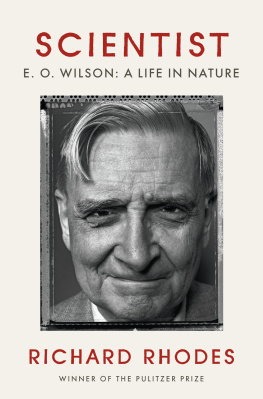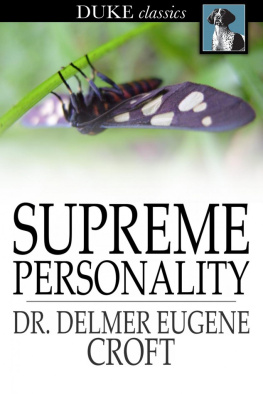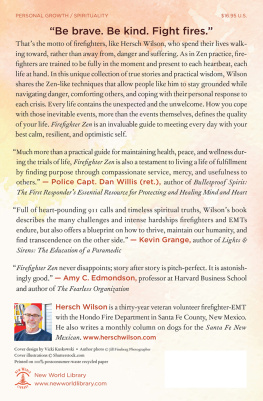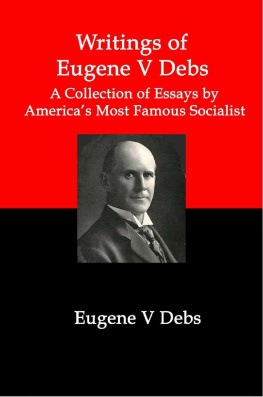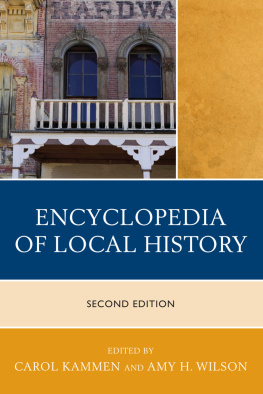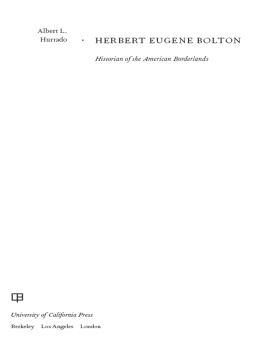Francis Field Wilson - The Eugene Field I Knew
Here you can read online Francis Field Wilson - The Eugene Field I Knew full text of the book (entire story) in english for free. Download pdf and epub, get meaning, cover and reviews about this ebook. year: 2011, publisher: Barnes & Noble, genre: Art. Description of the work, (preface) as well as reviews are available. Best literature library LitArk.com created for fans of good reading and offers a wide selection of genres:
Romance novel
Science fiction
Adventure
Detective
Science
History
Home and family
Prose
Art
Politics
Computer
Non-fiction
Religion
Business
Children
Humor
Choose a favorite category and find really read worthwhile books. Enjoy immersion in the world of imagination, feel the emotions of the characters or learn something new for yourself, make an fascinating discovery.
- Book:The Eugene Field I Knew
- Author:
- Publisher:Barnes & Noble
- Genre:
- Year:2011
- Rating:3 / 5
- Favourites:Add to favourites
- Your mark:
- 60
- 1
- 2
- 3
- 4
- 5
The Eugene Field I Knew: summary, description and annotation
We offer to read an annotation, description, summary or preface (depends on what the author of the book "The Eugene Field I Knew" wrote himself). If you haven't found the necessary information about the book — write in the comments, we will try to find it.
The Eugene Field I Knew — read online for free the complete book (whole text) full work
Below is the text of the book, divided by pages. System saving the place of the last page read, allows you to conveniently read the book "The Eugene Field I Knew" online for free, without having to search again every time where you left off. Put a bookmark, and you can go to the page where you finished reading at any time.
Font size:
Interval:
Bookmark:
FRANCIS FIELD WILSON

This 2011 edition published by Barnes & Noble, Inc.
All rights reserved. No part of this publication may be reproduced, stored in a retrieval system, or transmitted, in any form or by any means, electronic, mechanical, photocopying, recording, or otherwise, without prior written permission from the publisher.
Barnes & Noble, Inc.
122 Fifth Avenue
New York, NY 10011
ISBN: 978-1-4114-5501-6
The Eugene Field I Knew
THERE were many Eugene Fields. Like the Apostle, he was all things to all men and much to many. Curiously enough, the Eugene Field of Julian Hawthorne was diametrically the opposite of George W. Cable's Eugene Field.
He was well-nigh idolized in Chicago, where he delighted to live, and from which place "gold, silver, jewels and precious stones" could not tempt him permanently.
To "Bill Nye" he was an eccentric but companion, and James Whitcomb Riley, wondering at his versatility of talent, found Field "an isolated character running counter to any prior opinion that might have been formed of him." He was a terror to politicians, a Homer to the children, and different to, as well as from, everybody. He bore unique relations to each of his friends and acquaintances, as many of them have eloquently and affectionately testified. As Field came to be a conspicuous literary figure, it was most interesting to observe his keen enjoyment of growing reputation. He played the lion with admirable modesty and the tact of a Talleyrand. If the situation required it, he could "aggravate his voice so that he would roar you as gently as any sucking dove."
Possessed of a sonorous bass voice, an unconventional manner, and much magnetism, he easily made himself the centre of any group in which he chanced to mingle. He constantly attracted people who were as far removed as possible, seemingly, from any interest in the work in which he was engaged; then his missionary labors began; and in a few weeks, under the stimulating guidance of their poetic friend, his new acquaintances would be collecting books and rapidly developing into gentle bibliomaniacs. In this conversion of an indifferent soul into an enthusiastic worshipper at the shrine of literature, Eugene Field rejoiced.
His devotion to his friends was beautiful. With a great degree of truth it is said that his recreation consisted chiefly in the task of illuminating poems, or of writing dedicatory addresses in presentation copies of books which he gave them. He would give hours to the embellishment of a letter which it had taken him but ten minutes to write. He was fierce and uncompromising in the denunciation of shams; he mercilessly lampooned pretension and ignorance; but so winsome was the man's nature, so much was he loved by those with whom he came into personal contact, so touched were they by his tender strains in the praise of childhood, so convinced were all of his earnestness and honesty, of his civic pride, so drawn to him by his magnetic power, that many of those whom for years he publicly ridiculed stood with bowed heads about his coffin.
Except at those infrequent times when he permitted his face to take a serious cast, the Eugene Field whom I knew had little or nothing morose about him, little or nothing that was not of the brightest, sunniest character. He had a wonderfully keen appreciation of the humorous and the ridiculous, and a facility for turning a proposition from grave to gay and from gay to grave as unusual as it was diverting.
To know Field in his happiest moods was to sit as audience to him while with book in hand he read aloud some such production as the poems of the Sweet Singer of Michigan, and commented thereon. His dry, sly little chuckle (I never heard him laugh heartily) attracted you, if you were observing, while his criticisms were irresistible.
His "Oh, isn't that lovely!" as he would crow and narrow his shoulders in delight, when he met some especially crude line; as,
While on earth he done his duty,
and the mock-seriousness with which, still reading, he would troll out:
And now, kind friends, what I have wrote,
I hope you will look o'er,
And not criticise as some have done,
Hitherto, herebefore,
and his unique way of hunching himself into various comic positions on his chair, were very mirth-compelling.
He was not unmindful of the effect which he was producing, and grinned good-naturedly all the while at your helpless emotionthe tribute of laughter serving but to stimulate his "antic disposition."
Every occasion was seized upon by Field's Puritan relatives to provide him with a full store of biblical knowledge. As a child he was encouraged by his grandmother, a devout Congregationalist, to write sermons, for every one of which, as a reward of merit, he was given ninepencea very substantial sum in those days, in New England, to a boy of nine.
A number of these childish homilies was made, the surviving one of which testifies to his neatness and intelligence. The writer has often heard him read the sermon, and Field never failed to chuckle over the jumblethe Grco-Roman tussleof the pronouns, and to smile approvingly at the ambitious effort at fine writing of his younger self.
The "I remark secondly" and the "Oh, it is indeed hard for sinners to go down to perdition over all the obstacles which God has placed in his path" greatly amused him. He did not care much to commit Bible verses to memoryhe was fonder of recitationsbut grandma's insistence, and grandma's ninepences, gave him a knowledge of the Scriptures of which, later, he was very proud.
N OTES OF S ERMON BY E. P. F IELD .
TEXT IN PROV., CHAP. 13, VERSE 15.
The life of a Christian is often compared to a race that is hard, and to a battle in which a man must fight hard to win; these comparisons have prevented many from becoming Christians. But the Bible does not compare the Christian's path as one of hard labor. But Solomon says, Wisdom's ways are ways of pleasantness and all her paths are peace. Under the word "transgressor" are included all those that disobey their Maker, or in shorter words, the ungodly. Every person looking around will see many who are transgressors and whose lot is very hard.
I remark secondly that conscience makes the way of transgressors hard, for every act of pleasure, every act of guilt his conscience smites him. The last of his stay on earth will appear horrible to the beholder. Sometimes, however, he will be stayed in his guilt. A death in a family of some favorite object, or be attacked by some disease himself, is brought to the portals of the grave. Then for a little time, perhaps, he is stayed in his wickedness, but before long he returns to his worldly lust. Oh it is indeed hard for sinners to go down into perdition over all the obstacles which God has placed in his path. But many I am afraid do go down into perdition, for wide is the gate and broad is the way that leadeth to destruction, and many there be that go in thereat.
Suppose now there was a fearful precipice and to allure you there your enemies should scatter flowers on its dreadful edge. Would you if you knew that while you were strolling about on that awful rock that night would settle down on you and that you would fall from that giddy height, would you, I say, go near that dreadful rock? Just so with the transgressor, he falls from that height just because he wishes to appear good in the sight of the world.
But what will a man gain if he gain the whole world and lose his own soul?
Field began to write, in an amateur way, for newspapers in 1871, when he was twenty-one and a Sophomore at Knox College, Galesburg, Illinois. To "The Register," a paper published in the town, he made frequent contributions, which were recognized and eagerly read. His literary talent was acknowledged even at this early date, and his future success was thought to be assured. He is remembered as carelessly dressed, wearing his hair rather long, and smoking a cob pipe. His room was a resort for the college boys; he was very popular with the students, who were attentive listeners to his droll stories. It is unnecessary to say he was concerned in all the college pranks. At that early date he was a collector of books; but these beginnings of a library were unfortunately destroyed by fire. His kindness, honesty, and sincerity are also remembered.
Font size:
Interval:
Bookmark:
Similar books «The Eugene Field I Knew»
Look at similar books to The Eugene Field I Knew. We have selected literature similar in name and meaning in the hope of providing readers with more options to find new, interesting, not yet read works.
Discussion, reviews of the book The Eugene Field I Knew and just readers' own opinions. Leave your comments, write what you think about the work, its meaning or the main characters. Specify what exactly you liked and what you didn't like, and why you think so.


